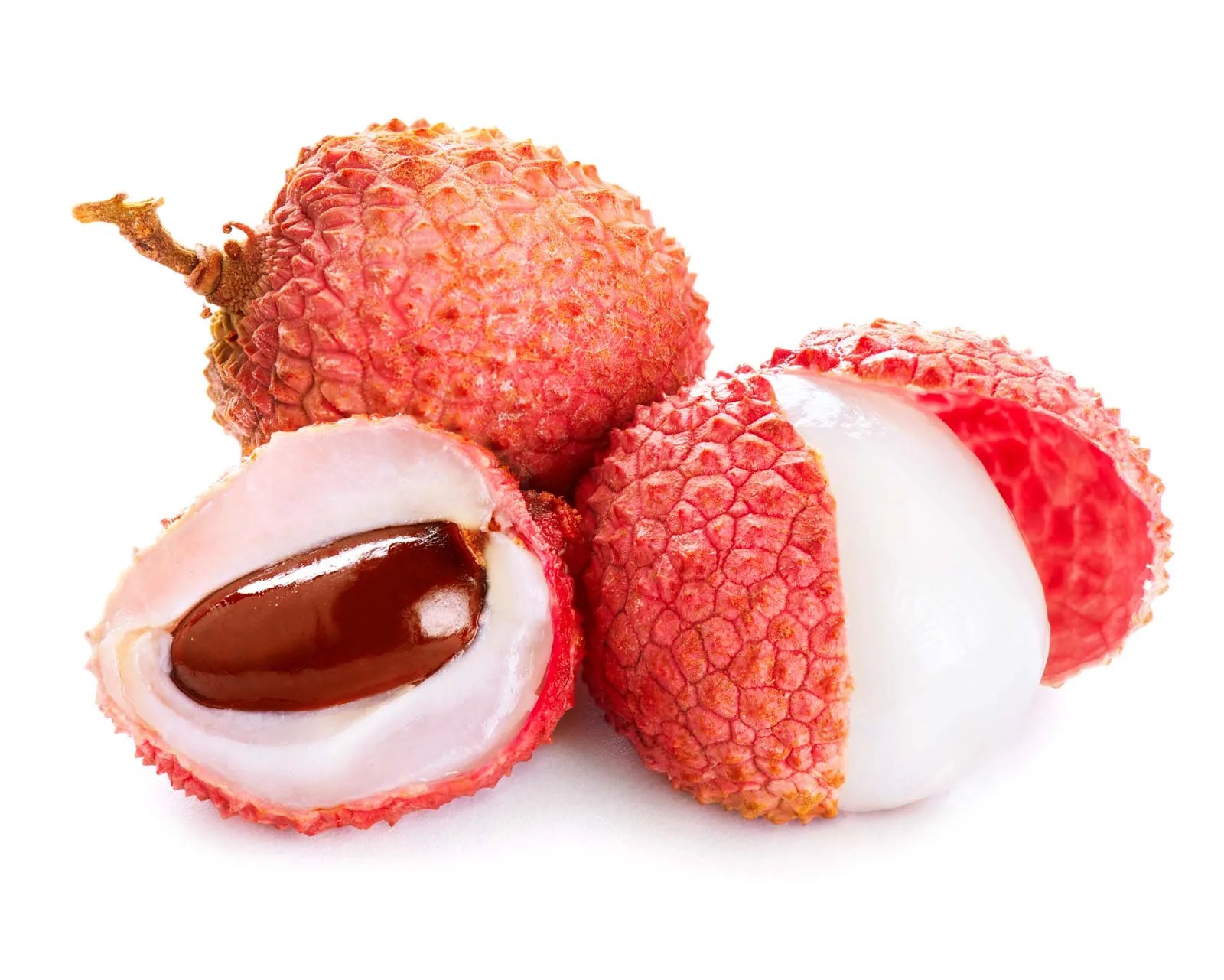Lychee, a tropical treasure trove of vitamin C and antioxidants, offers a delicate balance of sweet and floral flavors with potential health-boosting properties. From its vibrant red rind to its pearly white flesh, this exotic fruit has captivated palates for centuries. Join us as we explore the fascinating world of lychee, from its ancient origins to its modern culinary applications.
Unveiling the Tropical Jewel: Origins and Botany
The lychee’s story begins in Southeast Asia, with evidence of cultivation in China dating back to 2000 BC. Prized by emperors and commoners alike, this “dragon eye fruit” quickly spread throughout the region, eventually making its way to orchards around the world. Botanically classified as Litchi chinensis, the lychee tree belongs to the soapberry family, sharing kinship with fruits like the longan and rambutan. These evergreen trees, typically reaching heights of 15 meters (49 feet) but occasionally soaring to 28 meters (92 feet), bear clusters of the distinctive red fruit. [Looking for vibrant colors in your cooking? Consider mangold chard or orange caviar.] The lychee itself is a drupe, boasting a rough, reddish-pink rind that encloses a translucent, juicy white flesh. At its heart lies a single, inedible seed.
Nutritional Powerhouse: Vitamins, Minerals, and More
Beyond its alluring appearance, lychee offers a rich nutritional profile. Bursting with Vitamin C, a single lychee provides over 100% of the recommended daily intake, bolstering the immune system and offering protection against cellular damage. This potent antioxidant capacity is further enhanced by other beneficial compounds, suggesting a role in overall health maintenance, though more research is needed to fully understand these effects. Lychee also contributes dietary fiber, aiding digestion, along with essential minerals like potassium and copper. Potassium plays a vital role in maintaining healthy blood pressure and muscle function, while copper supports iron absorption and red blood cell formation. These combined nutritional benefits make lychee more than just a delicious treat; it’s a valuable addition to a balanced diet.
Lychee and Health: Balancing Benefits and Risks
While lychee offers a plethora of potential health advantages, responsible consumption is crucial. Unripe lychees, in particular, have been linked to outbreaks of encephalopathy in children, a serious brain condition. This is likely due to the presence of hypoglycin A, a naturally occurring toxin that can interfere with glucose production, particularly dangerous when consumed on an empty stomach. For most adults, a few unripe lychees probably won’t cause significant harm, but caution is advised, especially for those with underlying health conditions. Ripe lychees, on the other hand, are generally safe and offer a wealth of nutritional benefits. However, like any food, allergic reactions are possible, though rare. Individuals with latex or birch pollen allergies should be especially cautious when trying lychee for the first time.
Culinary Adventures: From Sweet to Savory
The lychee’s unique flavor profile opens doors to a wide range of culinary possibilities. Its delicate sweetness, often described as a blend of strawberry, grape, and rose, shines in both sweet and savory dishes. Enjoy fresh lychees simply peeled and eaten raw for a refreshing burst of flavor, or incorporate them into fruit salads, desserts, and drinks. Lychee ice cream, sorbet, and jellies are particularly popular treats, while lychee cocktails and even wine offer a sophisticated twist. In savory dishes, lychee adds a touch of sweetness to salads, sauces, and stir-fries, complementing meats, seafood, and even barbecue dishes. Dried and canned lychees are also readily available, extending their culinary versatility year-round. [Explore other ingredients to brighten your dishes like mangold chard or orange caviar.]
From Market to Table: Selecting, Peeling, and Storing
Choosing ripe lychees is key to enjoying their full flavor and ensuring safety. Look for fruits with a vibrant, reddish-pink skin, free from blemishes or bruises. A gentle squeeze should yield slightly, indicating ripeness. Avoid green or brown lychees, as they are likely unripe. To peel a lychee, simply pierce the rind with your fingernail or a knife and peel it away to reveal the succulent white flesh inside. Remove and discard the single, dark brown seed before enjoying. Fresh lychees are best consumed immediately but can be stored in the refrigerator for a few days.
Cultivating the Dragon Eye: A Tropical Endeavor
Lychee trees thrive in tropical and subtropical climates, requiring ample sunlight and warmth. They are typically propagated from seeds or grafted trees, and while they can be grown in home gardens, optimal conditions are often found in specialized orchards. Sustainable and ethical sourcing of lychees is an increasing concern, as demand for this exotic fruit continues to grow.
Beyond the Kitchen: Untapped Potential
Ongoing research continues to explore the potential health benefits of lychee. Studies are investigating its role in promoting heart and skin health, as well as its potential to combat cancer. Some preliminary research also suggests that the antioxidants found in lychee may have additional positive health impacts, but further investigation is crucial. The lychee’s historical use in traditional medicine is another area ripe for exploration. Its presence in cosmetic products and skincare routines are also increasing, hinting at exciting possibilities.
From its ancient origins to its modern applications, the lychee is a fruit with a fascinating story. By understanding its nutritional profile, potential risks, and diverse culinary uses, we can fully appreciate this tropical jewel. Whether enjoyed fresh from the tree or incorporated into a culinary masterpiece, the lychee offers a unique and delightful sensory experience.
- Food Making Kits Bring Easy, Fun Homemade Dishes to Your Kitchen - February 5, 2026
- Cooking Kits Make Mastering New Recipes Fun for Everyone - February 4, 2026
- Leak-Proof Glass Food Containers with Locking Lids Keep Food Fresh - February 3, 2026










